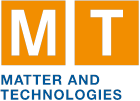Speaker
Description
Accelerator technology relies on superconducting magnets at cryogenic temperatures. Current leads connect-ing those magnets with their power sources at room temperature significantly contribute to the heat load on cryogenic systems due to the ohmic losses occurring in the temperature range above the transition tempera-ture. The thermodynamic optimization of current leads requires cooling along the entire length of the current lead that cannot be achieved using multiple staged cryocoolers.
Cryogenic mixed-refrigerant cycles (CMRC) based on the Joule-Thomson effect represent a cost-effective, effi-cient and scalable technology to achieve this. The internal heat exchanger used in the Linde-Hampson process can combine the function of a recuperator with that of a current lead. At Karlsruhe Institute of Technology (KIT), prototypes of micro-structured current leads cooled by mixed-refrigerants have been developed and success-fully tested on their thermal behavior. A test environment for performing experiments with high currents, how-ever, is yet missing.
The new Compact Accelerator Systems Test Stand (COMPASS) will provide the experimental environment to develop mixed-refrigerant cooled current leads and other superconducting accelerator supplying electrical currents from a few hundred A up to 10 kA. This poster will give an overview of the design and dimensioning of the test stand and demonstrate the flexibility of COMPASS with respect to the power range of the mixed-refrigerant cycles.
| Speed Talks | I am unable/unwilling to give a speedtalk. |
|---|

